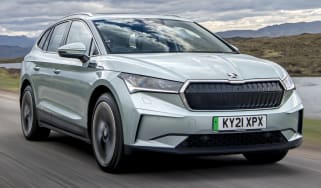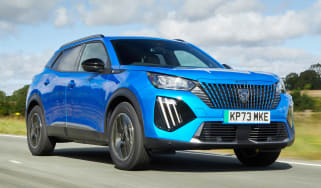Porsche Cayenne hybrid running costs & insurance
The Porsche Cayenne hybrid isn’t a cheap car to buy or run by any standard, but it’s competitive against class rivals
| Insurance group | Warranty | Service intervals | Annual company-car tax cost (20%/40%) |
|---|---|---|---|
| 50 | 3yrs/unlimited mileage | 2yrs/20,000 miles | From £2,804/£5,609 |
The Cayenne E-Hybrid offers all the fuel and tax savings inherent to plug-in hybrids, but it's also still a big, prestigious and sporty SUV, so things like insurance, tyres and servicing are going to be just as expensive as for any other 2.5-tonne 4x4 packing over 450bhp. There are big savings to be made if you're a company-car driver, however. The plug-in hybrid Porsche Cayenne commands a Benefit-in-Kind (BiK) bill around half that of the petrol version, slotting into the 19% band until at least April 2024.
Porsche Cayenne hybrid insurance group
The Porsche Cayenne falls into the highest possible insurance grouping, 50, which is the same rating as to the latest Range Rover Sport PHEV. We previously got a quote for a 35-year-old male driver, with a driveway, full no-claims bonus and no penalties, and saw most quotes coming in at around £1,300 a year.
Warranty
The Porsche Cayenne E-Hybrid gets a three-year/unlimited-mileage warranty and also three years of Porsche’s comprehensive European roadside assistance policy. If repairs can’t be made at the roadside, the cover includes a replacement car for four days in the UK and return of your vehicle to your home address, or onward travel and accommodation in Europe.
Servicing
The Porsche Cayenne E-Hybrid has variable servicing intervals and will display a warning on the driver’s readout when it need attention, but generally it will need a major service every two years or 20,000 miles, whichever comes first.
Road tax
As an 'alternatively fuelled' vehicle, the Porsche Cayenne E-Hybrid costs £145 a year to tax, but because it costs more than £40,000 to buy, it incurs and extra ‘premium’ tax of £335 annually the first five times you tax it. CO2 emissions starting at 89g/km mean it doesn't get free entry to the London Congestion Charge zone.




